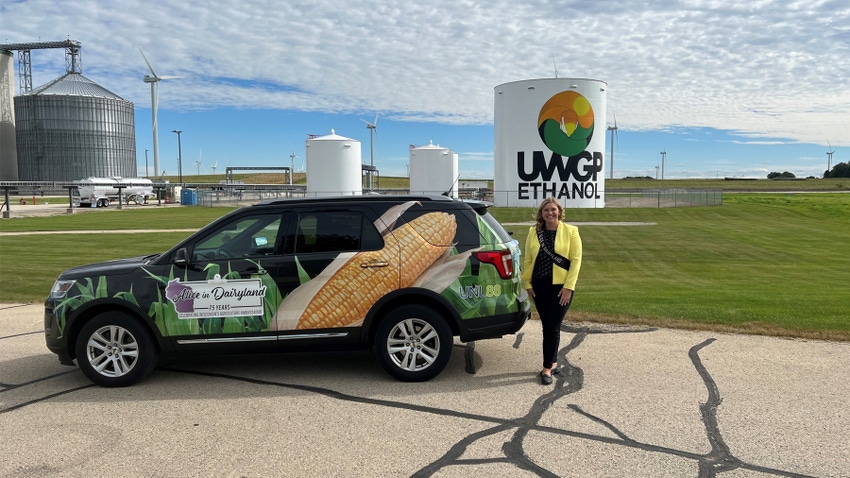March 17, 2023

by Taylor Schaefer
When I hear the word “sustainability,” I think of the farmers and crop growers who are in tune with care for their land and resources to produce food and fuel for Wisconsin communities.
Merriam-Webster defines sustainability as “relating to or being a method of harvesting or using a resource so that the resource is not depleted or permanently damaged.” For more than 175 years, Wisconsin farm families have been caring for their animals and the land, and ensuring resources are available to farmers for generations to come.
Every farm operation is different, but many have a common goal: to become a more efficient and profitable contributor to our nation’s food system and communities. Due to the modernization of dairy farming practices and dairy farmers’ commitment to sustainability, producing a gallon of milk releases 19% less greenhouse gas emissions than it did in 2007, and farmers use 90% less land per gallon.
Sustainable solutions
One way Wisconsin farmers are implementing sustainable solutions is through digesters, which turn cow manure into energy. Microorganisms break down organic materials like cow manure or food waste in a process called anaerobic digestion. This happens in a closed tank, where there is no oxygen, called a digester. There, bacteria break down the cow manure and food waste, creating biogas, which can be used for electricity, heat, compressed natural gas and even vehicle fuel. There are currently more than 30 manure digesters in Wisconsin.
One Wisconsin operation that takes pride in its sustainability efforts is Crave Brothers Farmstead Cheese in Waterloo. Not only does Crave Brothers produce delicious dairy products like mozzarella cheese and mascarpone, but it also is a carbon-negative company, which means it produces more power than needed to fuel its business. The computer-controlled anaerobic digestion system generates enough electricity to power the farm, cheese factory and 300 area homes.
Wisconsin farmers are also implementing sustainable measures in the field. Alsum Farms and Produce, a Wisconsin potato grower, is continually working to improve soil conservation and planting techniques. The operation does this by using planting and harvesting equipment with GPS technology that helps optimize efficiency and fuel consumption. Alsum Farms also uses eco-friendly Integrated Pest Management techniques that reduce toxic pesticides, preserve water quality, restore native ecosystems and protect wildlife.
Farmers around the state are adjusting tilling practices and adding buffer strips to field crops to decrease erosion and runoff. Michael Fields Agricultural Institute has been working to advance sustainable farming practices since the 1980s. The institute researches cover crops, hemp, wheatgrass, organic crops and more. Its research benefits consumers and the environment, and contributes to the future vitality of farms and rural communities. Improving farming practices to become more efficient and sustainable is key to feeding the growing population.
Maintaining natural resources
I have recently been able to work with the Wisconsin Corn Growers Association on its “We’re All For Clean Water” messaging to demonstrate Wisconsin corn farmers’ commitment to protect our water quality and how they are proactively working to be part of the solution — by using clean-water farming practices.
Corn is just one of the state’s agricultural commodities where farmers have increased their focus on keeping our water clean. Wisconsin farmers know the importance of maintaining our natural resources and are implementing practices to protect those resources every day.
It takes hard work to produce the food and fuel for our communities. You can become more sustainably conscious at home by being mindful of water usage and reducing food waste. Buying, preparing and eating the right amounts of food is a great way to become more sustainable. When food is wasted, the natural resources that went into creating that food are also wasted. You can also help raise awareness by sharing the sustainable practices and techniques that farmers are using.
Schaefer is the 75th Alice in Dairyland.
You May Also Like




